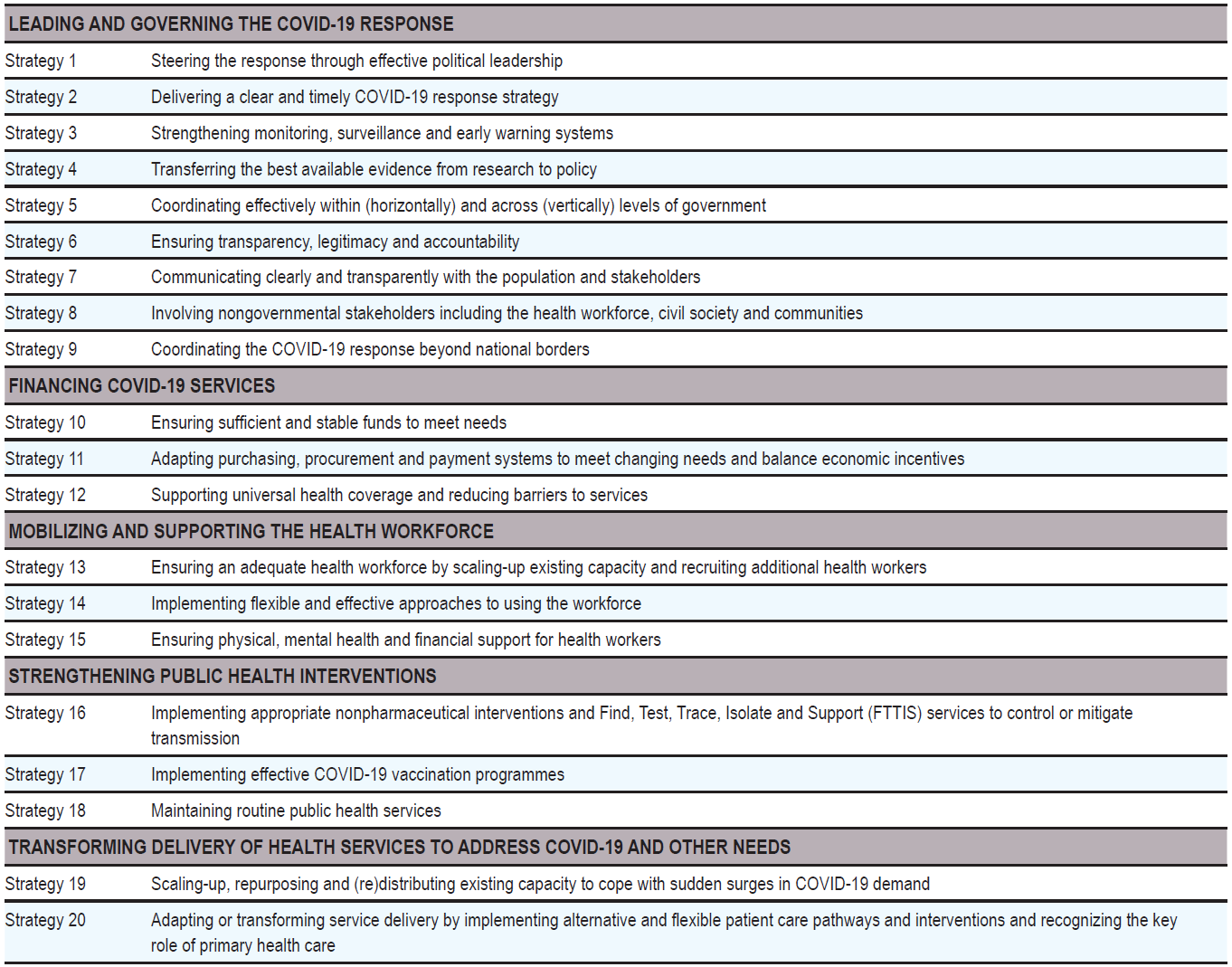‘Health systems resilience during COVID-19: Lessons for building back better’ launched at high-level meeting with Chief Medical Officers across Europe.
A new study developed by the European Observatory on Health Systems and Policies, the WHO Regional Office for Europe and the European Commission draws out lessons for strengthening resilience to future health threats.
The Health systems resilience during COVID-19: Lessons for building back better study gathers the evidence on how countries have managed (or not managed) to re-engineer how they work, the ways in which they utilize their resources and the methods
they use to face and counter the pressures exerted by both COVID and non-COVID challenges.
On November 15, the WHO Regional Office for Europe and the European Observatory on Health Systems and Policies convened a high-level meeting with Chief Medical Officers from across the Region to address these issues and facilitate an exchange of learnings
and lessons from interventions tackling this mounting backlog.
Dr Josep Figueras, who leads the Observatory and presented the study findings at the meeting, said: “Countries in the European Region have shown great resourcefulness and ingenuity when responding to COVID-19. But the pandemic has also exposed many
pre-existing challenges, including weakened public health and primary care services and workforce shortages. This could have provided an effective buffer to protect provision of curative care for all during the pandemic.”
The evidence the study assembles is rooted in what has happened and what policy makers need to know for the future. It builds on the core health system functions of governance, financing, resource generation and service delivery and organizes its findings
around a set of 20 key strategies that policy makers can use to assess the resilience of their health systems.
These strategies and corresponding examples largely draw on the
Health System Response Monitor (HSRM),
a joint initiative of the European Observatory on Health Systems and Policies, WHO/Europe and the European Commission, where information on the national responses to the pandemic has been systematically collected since March 2020.
From disruption to recovery: political leadership is needed to prioritize health
The extent of the COVID-19 pandemic and the speed of its spread required prompt and resource-intensive responses from health systems across the world. This also resulted in the disruption of a range of regular health services.
Two years into the pandemic, 82% of countries in the WHO European Region are still reporting some service disruption. WHO’s 2021 Pulse survey on continuity of essential health services during the COVID-19 pandemic reveals that essential but non-emergency
services such as elective surgery and rehabilitation, diagnostics, noncommunicable diseases (NCDs) and cancer screening, mental and dental health care services remain heavily disrupted in several countries. This in turn is causing delayed access to
preventive and curative services, as well as a growing backlog of the latter.
